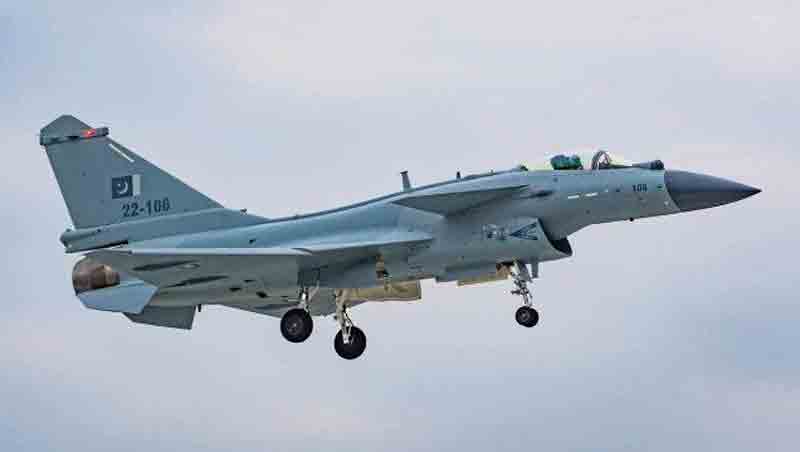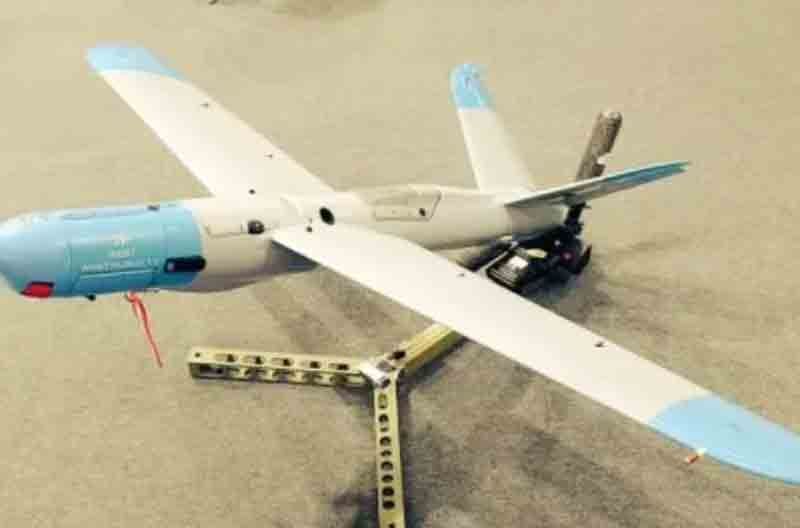The global powers have now declared a ceasefire in the briefest conflict between Pakistan and India, which lasted just four days. This conflict has altered the strategic landscape of South Asia and shifted the global power paradigm.
Prof. Victor Gao of Soochow University reiterates the relations between China & Pakistan as Iron clad ‘Twin Brothers’…!!
pic.twitter.com/hqlE52nDgQ— Dr. Ahsan RAJPUT (@DrAhsanRAJPUT) May 9, 2025
Chinese strategic analyst Professor Victor Gao states, ‘China owes a debt of gratitude to Pakistan and its military, which has facilitated China’s rise as a superpower by showcasing its defense technology to the international community.’ Indian defense analysts also acknowledge that the Chinese military is unable to utilize its own war technology as effectively as the Pakistani military has demonstrated.
Pravin Sawhney is sharing some interesting facts here, but all our ladies are only going to hear one name in the entire video: Aurangzeb Ahmad. 😄 pic.twitter.com/3M0H4OjA9R
— Tanzeela Niazi (@TNiazi16) May 12, 2025
Western defense analysts express astonishment that, for the first time in history, Pakistani hackers successfully took control of over 2,500 Indian CCTV cameras through a bold cyber operation and accessed an Indian defense website. These hackers infiltrated the Indian Air Force’s database system and incapacitated the Indian defense infrastructure without a single shot being fired. Pakistani cyber warriors have shown that they can astonish the world not only in traditional military domains but also in the realm of cyber warfare.
While there may be numerous factors contributing to the failure of India’s aggression, the primary cause of this significant defeat was India’s inadequate understanding of Pakistan’s defense capabilities. Additionally, the lack of awareness from the US, UK, and Israel regarding Pakistan’s response potential severely undermined the intelligence frameworks of Western nations. Following India’s defeat, Israel, the US, and Europe are left in disarray, as this brief four-day conflict has fundamentally altered the entire paradigm of military strategy.
The collective mindset of the US and Europe, which had anticipated Pakistan’s downfall at the hands of India, is now frantically attempting to mask the shortcomings of their strategic plans by commending Pakistan. Ultimately, it is the US and Israel that bear the true responsibility for India’s conclusive defeat in cyber warfare, which will hinder its resurgence for an extended period. Their reliance on misleading information led Narendra Modi to embark on a reckless venture against Pakistan, exposing India to unforeseen devastation.
This unprecedented defeat has stripped India of its dignity. Narendra Modi, whose authority relied on fear and aggression, has disintegrated into nothingness following this loss, and his entire persona has collapsed. Now, like a forsaken deity, he may seek solace in death. This comprehensive defeat will not only destabilize India’s internal defense mechanisms and political framework for an extended period, but the unforeseen political turmoil arising from this failure could also jeopardize India’s territorial integrity and national security.
Historically, Pakistan has served as the last bastion against the relentless decline that commenced with the fall of the Ottoman Empire in 1921. Had it faltered, the survival of Muslims worldwide could have been at risk. However, through an enigmatic strategy, nature revitalized the seemingly lifeless body of the Muslim Ummah by granting Pakistan a decisive victory over a formidable military power like India. Indeed, transformations in collective existence are often unplanned and emerge unexpectedly. Following the disgraceful defeat of Indian leaders, the plight of oppressed Muslims in India has come to light. Additionally, neighboring nations such as Bangladesh and Sri Lanka, along with smaller countries like Bhutan, the Maldives, and Nepal, which have endured Indian oppression, are beginning to explore avenues for liberation.
Following a brief resistance to Indian aggression, the stance of Middle Eastern Muslim states towards nuclear Pakistan began to shift dramatically. From the smaller emirates to Turkey, Iran, Saudi Arabia, and Egypt, the entire Arab world’s power dynamics are on the verge of transformation. While this conflict appeared to be a confrontation between China and the United States for global dominance, Pakistan’s decisive victory over India during this period disrupted the strategies of the United States, Israel, and Europe aimed at perpetually subjugating Muslims.
Furthermore, Pakistan successfully extricated its defense system from American control, forging alliances with China and Turkey. The harsh reality is that, with the establishment of Pakistan, the United States not only integrated Pakistan into its social framework, hindering its development into a sovereign state, but also maintained it in a continuous state of defeat and devastation through a calculated strategy. Over the past 78 years, despite designating Pakistan as a ‘defense ally’ and entangling it with India, from 1948 through the war on terrorism in 2001, the U.S. systematically orchestrated conditions for Pakistan to experience defeat in every conflict, thereby facilitating Indian dominance in the region. During the 1965 war, Washington halted aid to Pakistan, and in 1971, the United States played a crucial role in the formation of Bangladesh by fostering covert Bengali nationalism and bolstering Indian aggression to fragment Pakistan.
The fundamental principle of history is that what ascends must eventually descend. Following America’s disgraceful exit from Kabul, Pakistan has, for the first time, liberated itself from America’s ‘friendly grip’ and revealed the troubling legacy of American alliances by triumphing over India, a nation significantly larger in size. This, in my view, marks a pivotal moment of liberation from American influence, showcasing a century’s worth of history that has finally led us to a period of victory.
Over the past 78 years, overshadowed by America’s influence, we have experienced nothing but economic and political setbacks, military losses, turmoil, violence, and deep-seated animosity. Pakistan’s success against India not only demonstrated our external strength and capabilities but also dismantled regional insurgencies and internal conflicts, uniting the nation with a renewed sense of pride and dignity.
Over the past forty years, the wave of animosity towards the state has begun to diminish. The triumph has illuminated the previously overshadowed spirits of the nation, transforming the once-defeated army into a source of national pride within just four days of conflict.
The calls for Balochistan’s secession and the religiously motivated threats from the TTP, which thrived on violence, are expected to subside. Armed factions that viewed the country as weak and ripe for insurrection have received a decisive response.
The PTI’s cyber brigade, previously fixated on political upheaval, has been neutralized, and the influence of Khan’s popularity has waned. In the aftermath of this victory, Pakistan’s leadership has conveyed a constructive message to the international community, maintaining a stance of seriousness and dignity, free from arrogance and vengeance. The nation aspires to be recognized as a responsible and influential nuclear power on the world stage.
Discover more from Defence Talks | Defense News Hub, Military Updates, Security Insights
Subscribe to get the latest posts sent to your email.





